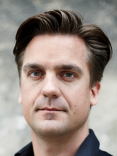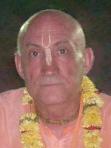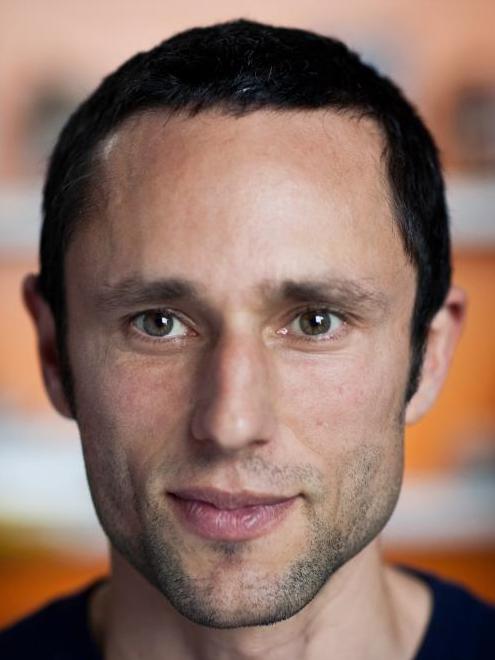Beyond green economy
Conference at Whitsunday with Charles Eisenstein
May 19 - 20,
2013 at Copenhagen Business School
Green growth is an oxymoron
Where do money
come from? Why are most people, most companies, and most countries always in
debt? Who do we owe all this money to? Why do our politicians always want growth
when the Earth is running out of resources? Why do we have to work so hard when
machines are taking over more and more of our work? Why are there so many
unemployed people while there is so much important work that is not being done?
Why are there homeless people and peopleless homes at the same time? Why are there austerity cuts
and decreasing welfare everywhere when the World is rich? Why can't the World's
politicians agree on efficient measures against greenhouse gases and other
pollution? The economists have promised maximal welfare and perpetual growth if only
we unleash the free market forces, but instead we are getting crisis, austerity cuts,
poverty, overexploitation of natural resources, and threatening
pollution. What is wrong with the economists' models? Don't you think we can do
better? Don't you think it is possible to create a more just and sustainable
World?
“If
we keep the current debt-based money system, financial crises will continue to
occur, with the costs passed onto ordinary people and businesses."
PositiveMoney.org.
“Contemporaneous with the financial crisis we have an ecological crisis and a
health crisis. They are intimately interlinked. We cannot convert much more of
the earth into money, or much more of our health into money, before the basis of
life itself is threatened.”,
Charles Eisenstein in his book
Sacred Economics.
The solution is,
according to Eisenstein, that we start to take back some of the territory that
money has captured. We should simply be better at giving and receiving gifts.
The author lives by this principle himself by speaking for free and by making
his books freely awailable on the web.
Also speaking at
the conference on May 19th is the author of the book Spiritual Economics,
Dhanesvara Das;
sociologist and associate professor at Copenhagen Business School, Ole Bjerg;
and emeritus professor at the Technical University of Denmark, Niels I. Meyer.
The second day of
the conference, May 20, is scheduled for a number of workshops with
contributions from a diversity of grassroots organizations. These workshops will
give you the opportunity to put the information and inspiration from the
conference into concrete initiatives.
The conference is
organized by Occupy Denmark and Transition Denmark in cooperation with
Copenhagen Business School.
The language of the conference is English.
Venue of May 19th
is Copenhagen Business School, Solbjerg Plads 3, 2000
Frederiksberg, Denmark (Map.
Metro to Frederiksberg St.). The second day is held at Studenterhuset, Købmagergade
52 in central Copenhagen (next to the Round Tower. Train or Metro or bus to
Nørreport).
There is free entry
in accordance with the spirit of the conference, and even the vegetarian lunch served in the break is free. The
whole event is based on voluntary work and donations. Donations are wellcome at
the conference or by bank transfer to
reg. 8401 nr. 1193624.
Exhibitions:
There will be a documentary-art exhibition by
Crisis Mirror, and
an exhibition of art as money by ArtMoney
at the conference venue.
Agenda:
Whitsunday, May 19th at CBS,
Solbjerg Plads 3:
| 11:00 |
 |
Welcome
by
Martin Spang Olsen |
| 11:10 |
 |
Ole Bjerg &
Charles Eisenstein
Conversation on the origin of money |
| 12:00 |
|
Pause |
| 12:10 |
 |
Niels I. Meyer
Limits to growth: Problematic economic concept of "green growth".
Abstract: The concept of limits to economic and material
growth on a limited globe is a central recognition in modern time.
Unfortunately, this concept is still not accepted by the dominating
economists and by most governments in industrial countries. Structural and
political consequences of this concept are not taken seriously. Instead
the arguments are derailed to loose concepts as "green growth" and
misleading claims of decoupling between growth and global warming. A
number of barriers and dilemmas have to be overcome if mitigation of
global warming and the transition to a green sustainable society are to be
accomplished in time. The paper focuses on the required changes in
economic and social systems. |
| 12:40 |
|
Free lunch
In cooperation with Restaurant Govinda |
| 13:45 |
 |
Dhanesvara Das
Consciousness is the problem and consciousness is the solution |
| 14:10 |
|
Break |
| 14:20 |
 |
Charles Eisenstein
Beyond the green economy |
| 15:30 |
|
Break |
| 15:45 |
 |
Panel discussion with Charles Eisenstein, Ole Bjerg, Niels I. Meyer
and Dhanesvara Das.
Chairman: Martin Spang Olsen |
| Note. There is a limited number of
seats. It is advised to come early if you want a seat. The speaking will
be in the BG Fund auditorium (S.01). There will be live transmission in
the Carlsberg auditorium on 2nd floor (2.02) in case there is not enough
seats for everybody in the first auditorium. There will also be live
streaming so that you can follow the conference at home on Google Hangout,
title "Beyond Green Economy". Link will be posted on
Facebook. |
Informal get together in the evening
at the garden restaurant
at Ny Carlsbergvej 68.
Second day, May 20
at the Student house,
Købmagergade 52:
| 12:00 |
Wellcome and presentation of workshops |
| 12:15 |
How do we move on from here?
Five parallel workshops (with possibility for making more workshops) |
| 13:15 |
Break |
| 13:45 |
Workshops continue |
| 14:45 |
Break |
| 15:00 |
Common discussion |
|
Workshops |
| 1 |
Dhanesvara Das: How to Create an
Economics of Compassion
(Dhanesvara Das (Don Rousse) is a social healer, social
economist, spiritual teacher, speaker and monk. He travels the World
teaching spiritual economics.
www.spiritual-economics.com) |
| 2 |
Ross Jackson: Occupy World Street:
A Global Roadmap for Radical Economic and Political Reform.
(Ross Jackson, PhD, is a Danish/Canadian economist,
philanthropist and leading expert on foreign exchange with 25 years’
experience in international finance. He is majority shareholder of the
organic foods wholesaler Urtekram and chairman of the Danish charity Gaia
Trust, founder/funder of two extensive global networks: the Global
Ecovillage Network and Gaia Education.
www.ross-jackson.com) |
| 3 |
Erik Lemcke from
Transition
Denmark will facilitate an Open Space process, where anyone who has a
concrete idea for action can offer this idea up for further development
within a group.
Based on the available number of ideas for action, and
the total number of participants, there will be an appropriate number of
parallel sessions/working groups. |
| 4 |
Elise Waage-Petersen and Anne
Visby: Earth Wisdom - Council on sustainability.
Elise and Anne work as Council Guide Trainers. The
workshop introduces The Way of the Council, an ancient process of
gathering wisdom and information from eight different perspectives with
the purpose of ensuring wholeness and balance on any issue or question
raised by the people. During the workshop we will council on a question
relevant to the theme of the conference. |
| 5 |
Pheobus A. P.: From u-topia to til
utopia. Video-workshop about people's wishes for the society we want to
live in.
(Phoebus in an activist in
Crisis Mirror
and Occupy Denmark). |
Proceedings
A final document
with proceedings from the conference and documents from the workshops are published
here.
Contributions from the workshops can be
sent to konference@occupy.dk.

Thanks to the sponsors:
Govinda Restaurant,
Plant2Plast environment
friendly plast products,
Reklamebureauernes Fællestrykkeri,
Forstædernes Bogtrykkeri.





